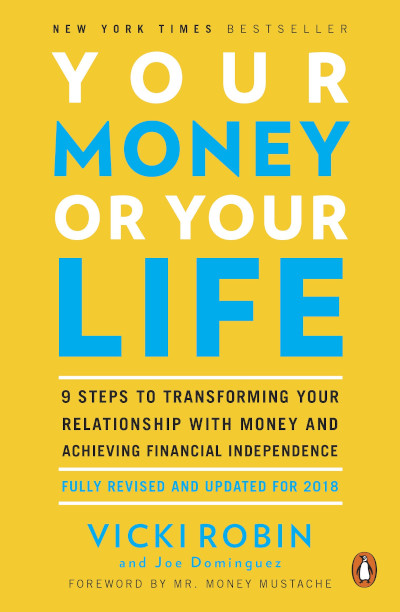If you want to save money, you should stay away from your phone !
that's what Wall Street Financial Analyst says about how to save your retirement savings.

Be a saver
How much do you save now? Is there any debt? Or is it paying off the debt? Or spend all your money? Your savings rate is a very important indicator of progress toward financial independence. There is a concept for how much money you want to save: if you spend all your monthly salary, you can never retire; if your income is not spent at all , Congratulations, you are financially independent and no longer need to work to make money.
Again, saving is an important method of financial independence. Savings can make you more courageous in the career path, and also gives you the opportunity to explore the neglected parts of life. Saving money gives you the opportunity to have a freer life, free from debt, and liberate your life from the 9th to the 5th Middle School. In case of unexpected emergency spending, you can respond more calmly.
10 ways to save money
1. Don't go shopping
If you don't go shopping, you wo n’t spend money. Of course, if you really have a demand in your life, you still have to buy something in the store, but don't go shopping for shopping. The reason is too simple, if you do not move to the store, you will not have the opportunity to pay for things. Not only that, now you can use the phone to shop at any time, and within a few days or hours, the goods will appear at your doorstep. Even if you don't often go to shopping sites to buy things, when you go online, some advertisements will remain inseparable. Your screens, text messages, and emails are full of all kinds of "highly relevant" merchandise information, tempting you to spend money . This new type of advertising content is closely related to your usage habits. If you use it wisely, sometimes you will actually buy bargain necessities, but be careful. If you neglect, you may not go to the store, but you spend a lot of money and buy a bunch of things you don't need. s things.
2. Live within your abilities
This concept may be a bit outdated for some readers. Only buy things that you can afford, and avoid borrowing money unless you are sure that you can repay the money within a short period of time without using emergency petty cash. This concept was actually a fashionable practice a few generations ago and before credit had been abused. There are two sides to your life, the bright side is that you can get what you want immediately; the dark side is that you have to pay for it, including interest. Borrowing money to buy things, whether it's a car, real estate or vacation, the result is often that you have to pay more than 3 times the price.
3. Take good care of what you already have
There is one most important thing, we must maintain it in good condition for a long time: your body. Simple preventive actions can save you a lot of money, take care of your teeth, save a lot of money to go to the dentist clinic; choose a diet that the body can afford (for health, not taste buds), which will save you It may cost thousands of dollars, but also keep the body strong.
4. Use things until they are completely unusable
Do you remember what you used until you ca n’t use it? Examine what you have. Have you waited until it is worn out, but only for the new model, have you changed your mobile phone, furniture, pot, bed set? Have you ever thought about how much money you would save if you could extend the service life by 20%? If you feel itchy and want to buy something, ask yourself: "Do I already have an identical thing in good condition, but it is useless all the time?" Another way to save money is when you throw away something Before, ask yourself: Is this thing completely useless? Or is it useful?
5. Roll up your sleeves and do it yourself
Will you help the car change bulbs or other parts? Or repair the water leak? Will you file your own taxes? Do you make gifts yourself? Change the bicycle tire yourself? These are the lives our fathers and grandchildren had lived before. At that time, everyone could do some simple and basic life skills, and now we have all developed the habit of asking others to do the work. Reverse this trend. When you want to call someone for help, ask yourself more: Can I come by myself? How long does it take to learn? Will this skill be useful in the future?
6. Plan well for your needs
Spending some time researching what you want to buy can save a lot of money. If you have a little more time to search, you can buy what you want at a cheaper price. Make a list of things you want to buy in the coming year, do some homework beforehand, study the different brands, models and prices, make good use of suitable price comparison tools, price comparison websites, e-commerce shopping platforms or classified ads. The system will give you instant notice when the price of the goods is reduced. Be optimistic about the products you want beforehand, and when the price reduction comes, you can buy it at the most cost-effective price, because the special prices of promotional activities are almost always limited to days, hours, or even minutes.
7. Study the value, quality, durability, multi-function and price
Study your own consumer behavior, and at the same time, take a closer look at trusted e-commerce websites or shopping markets to see what netizens say about them. Think about what kind of products you need and which things are most important to you. Do n’t just look at the price, thinking that the cheapest thing is the best consumption. If you want to use an item for up to 20 years, durability is important. Intuitively, low prices are the best way to save money, but if you buy a $ 40 item that can be used for 10 years, compared with an item that can only be used for 5 years and priced at $ 30, in the long run, 40 Instead, US dollar commodities can save you 20 dollars.
8. Spend little money on things
Doing so allows you to buy the right things for a small amount of money: comparison sites, bargaining, buying second-hand goods.
9. Meet your needs in different ways
The real pursuit of simplicity is how to find the lifestyle you want with less cost, rather than spend nothing. You are not trying to limit your desires, but to find exactly what you want. If you want to get rid of the routine, you can try to relax the standard occasionally (for example: make the room a little messy), or do n’t take so many responsibilities (people ask you for help, do n’t always do n’t understand rejection), or or Change your own habits (for example: do everything yourself and do n’t want to hire someone to help).
10. Be sure to follow 9 steps
Many people have indeed followed 9 major steps to successfully complete this financial independence plan. Through gradual implementation, they changed their relationship with money and the external material world. This is a major change, not just saving money. The shopping impulse disappears, and no longer negates and sinks. Instead, it is self-awakening, which is exchanged for greater happiness and joy. You can regard this plan as an important kit, and carefully perform these steps. There will be major changes in life. Each step is very important, and collectively exert synergy to allow you to continuously evolve.
Book: Your money or your life
About the Author:
Vicki Robin
Famous innovator, writer and speaker. In addition to being a best-selling author, he is also committed to the sustainable life movement. She has won the Northwest Sustainable Life Award in the United States, and has been invited to appear on "Oprah Show", "Good Morning America" and other programs, "Time Magazine", "New York Times", "Wall Street Journal" and other media even called her Pioneer in consumption reduction.
Joe Dominguez, 1938-1997
Wall Street Financial Analyst, the financial independence steps described in this book and the method of recording the "Monthly Statement" are his inventions. He also implemented it in himself, and retired at the age of 31. Through the audio course "Changing Your Relationship with Money and Achieving Financial Independence", Joe's ideas were able to spread after his death.


















































 Philippine Peso Exchange Rate
Philippine Peso Exchange Rate






